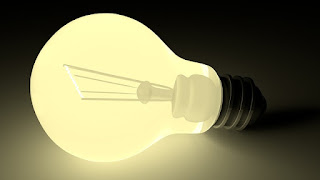Default Vs. Preferred State: How to live your best life
There are two kinds of people in this world. Those who live in what I’ll call “default state” and those who live in “preferred state”. And here’s where I get the tiniest bit geeky and invoke the image of an energy graph for an atom, where the atom can be in one of two states, as shown below. [ image source ] At any given moment, a person can either be in the initial energy state or the lower energy state. He cannot be in both, and he can move from one to the other. But this moving requires two things: energy and time (no quantum tunneling in this analogy). And most of us think we don’t have enough of either. Default state is where most of us exist, as reactants. It’s where we started, probably as soon as we got into high school. It’s where most of the people we know are, and it isn’t so bad, at least not for most of us. The default state is where you stay if you do the bare minimum. You get C's and B's. You do what it takes to keep your job, maybe only just eno
